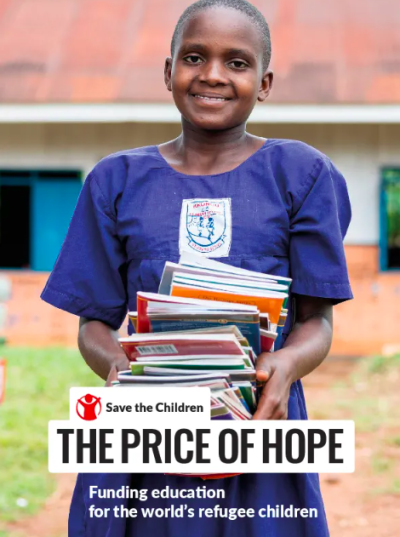Educación para Refugiados
La educación es crucial para niños, niñas y jóvenes refugiados. La Agenda 2030 y el Convenio Mundial para los Refugiados 2018 solicitan que todos los niños, niñas y jóvenes desplazados por la fuerza (incluyendo a los refugiados, las personas que buscan asilo y las personas desplazadas internas) tengan acceso a una educación inclusiva, equitativa y de calidad.
Al final del 2023, hubo más de 117.3 millones de personas desplazadas por la fuerza en todo el mundo. De los 31,6 millones de personas refugiadas bajo el mandato de ACNUR, aproximadamente 14,8 millones están en edad escolar, pero su acceso a la educación es limitado, ya que la mitad de la niñez refugiada no puede asistir a la escuela.
La educación de los refugiados no debe ser una intervención de crisis, a corto plazo, que dependa de una financiación impredecible e insostenible.
¿Quién es un refugiado?
De conformidad con la Convención sobre los Refugiados de 1951, por refugiado se entiende una persona que, debido a fundados temores de ser perseguida por motivos de raza, religión, nacionalidad, pertenencia a determinado grupo social u opiniones políticas, se encuentre fuera del país de su nacionalidad y no pueda o no quiera, a causa de dichos temores, acogerse a la protección de tal país.
Mensajes Clave
- A nivel mundial, el 75% de los niños y niñas están matriculados en preprimaria, 90% en la escuela primaria, el 86% en la secundaria y el 43% en educación terciaria. Para el curso académico 2022-2023, solo el 37% por ciento de niños y niñas refugiadas estaban matriculados en preprimaria, 65% en la escuela primaria, solo el 42% en la escuela secundaria y apenas el 7% en educación terciaria.
- La educación reduce el riesgo de reclutamiento forzoso, el trabajo infantil, la explotación sexual y el matrimonio infantil, entre otros riesgos.
- La educación proporciona un lugar seguro para que los niños, niñas y jóvenes refugiados aprendan y se relacionen, de manera significativa con sus compañeros, dentro de la rutina normal de un aula.
- La educación también fortalece la resiliencia de la comunidad y les brinda a los estudiantes conocimientos y aptitudes, para encontrar soluciones a largo plazo.
- La educación empodera a los refugiados al brindarles conocimiento y habilidades para vivir vidas productivas, plenas e independientes.
- La educación ayuda a los refugiados a ser auto-suficientes, lo que les permite aprender sobre sí mismos y sobre el mundo que les rodea, mientras se esfuerzan por reconstruir sus vidas y comunidades.
- La falta de documentos y recursos financieros, la disponibilidad limitada de escuelas (especialmente secundarias) y la xenofobia son algunas de las razones principales que evitan que los refugiados accedan a la educación.




